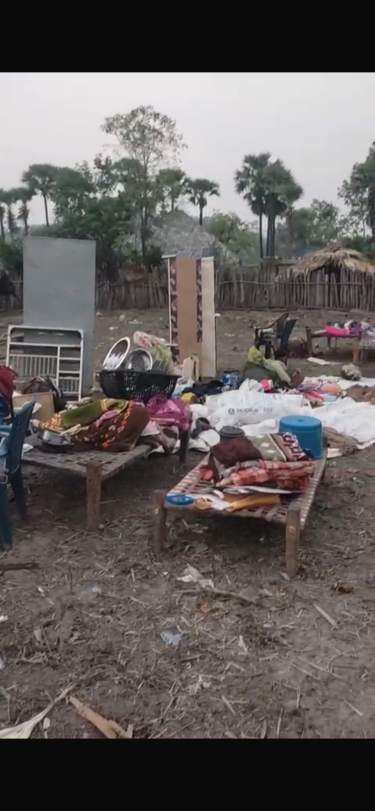
Six Christian families have returned to their homes in remote Karigundam village in Chhattisgarh, after government intervention, two days after being forcibly evicted for refusing to renounce their faith, according to local pastors and officials.
On April 12, approximately 400 villagers from nine surrounding villages gathered for a gram sabha (village council) meeting in Karigundam, located 67 kilometers from Sukma district headquarters. The council unanimously voted to expel 13 Christian families from the village unless they renounced their faith and returned to traditional tribal religious practices.
Seven families, under intense social pressure, agreed to abandon Christianity. However, six families - led by Butar Singa, Poonem Mutta, Gaddam Veera, Kadati Baalraj, Kadati Linga, Kako Rama, and Kunjam Sammi—refused to renounce their faith despite facing certain expulsion.
Following the council’s decision, villagers removed the belongings of the six resistant families, loaded them onto tractors, and forcibly evicted them from Karigundam. The evicted families, including children, were left living in the open with their possessions scattered around them.
On April 13, Central Reserve Police Force (CRPF) and local police officials attempted to escort the families back to their homes, but hostile villagers blocked their return. Today, in a significant development, local administration officials, police, and CRPF successfully facilitated the families’ return to their homes.
Authorities reportedly explained constitutional rights to the villagers and warned them against repeating such actions, which were described as both unconstitutional and illegal.
The evicted families have been practicing Christianity for 7-10 years, according to local sources. The tribal-dominated village has a total population of 661 people comprising 136 households, all belonging to Scheduled Tribes.
The village council reportedly justified the evictions by claiming that religious conversion disrupts the social structure and traditions of the village. The village head (sarpanch) explained that the gram sabha’s decision was made to preserve village unity and traditions, citing powers granted under Article 243(A) of the Indian Constitution.
However, when authorities intervened on April 14, they explained to the villagers that such actions violate the constitutional rights of citizens to freedom of religion. Officials reportedly warned villagers not to repeat such unconstitutional and illegal acts in the future.
The incident occurs against a backdrop of increasing tensions in the region. The Chhattisgarh Christian Forum alleged that the state Chief Minister Vishnu Sai recently made statements claiming Christians are engaged in illegal conversions, though he has provided no data or statistics to support these allegations.
The area, heavily affected by Maoist insurgency, has a complex history of conflict. In 2005, a controversial state-backed militia called Salwa Judum was formed in Chhattisgarh, which allegedly committed serious human rights abuses against tribal villages before being disbanded by order of the Supreme Court in 2011.
Rights advocates have expressed concern that the mineral-rich forests inhabited by tribal communities are being targeted not merely for religious reasons but as part of broader efforts to gain control over valuable natural resources.
This incident marks the first reported case in Sukma district where village council powers have been used to formally expel Christian families, setting a concerning precedent for religious freedom in the region’s tribal communities despite the eventual intervention by authorities.




